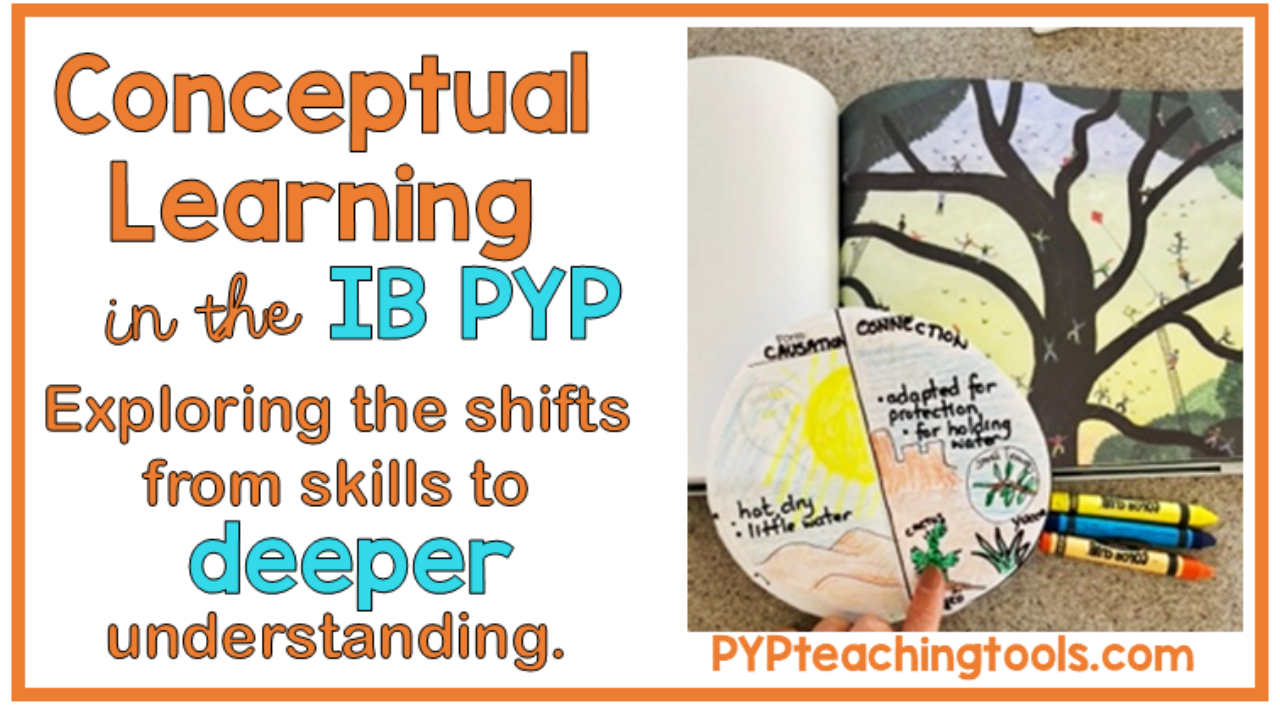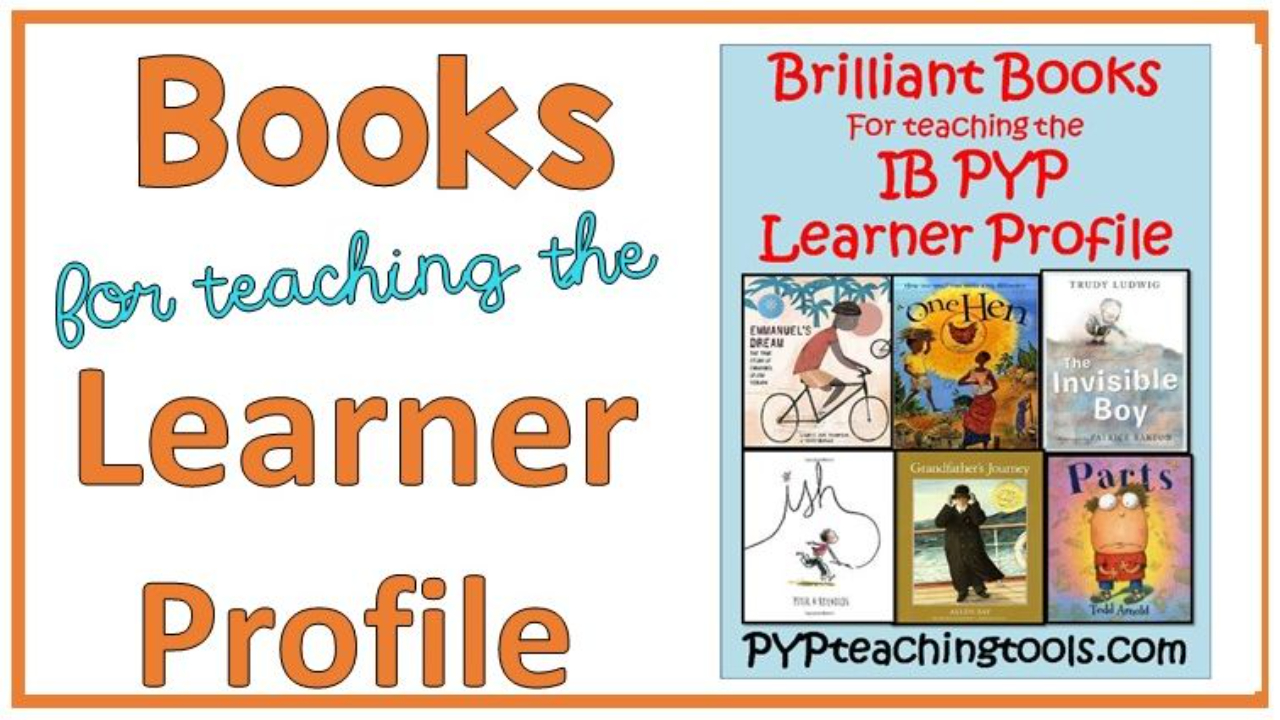Welcome to PYPteachingtools.com
Conceptual Learning in the PYP: Exploring the Shift from Skills to Understanding

The Big Shift: From Scope & Sequence to Subject Continuum
The International Baccalaureate has announced a major update in the 2025 PYP Subject Documents, marking a philosophical and practical evolution in how we view learning.
The familiar Scope and Sequence documents, once our go-to reference for what students should know and be able to do, are now being replaced with Subject Continuums.
But this isn’t just a terminology update. It represents a fundamental shift from skills-based planning to concept-based understanding.
Where the Scope and Sequence outlined a linear progression of skills, the Subject Continuum invites teachers to view learning as an ongoing, interconnected journey of conceptual growth across disciplines.
Why the Shift Matters
The move to Subject Continuums recognises that skills do not exist in isolation but that they are vehicles for understanding bigger ideas. By embedding conceptual understanding within skills, we move from “What can they do?” to “What do t...
Brilliant Books for Teaching the IB PYP Learner Profile


Books for Teaching the IB PYP Learner Profile
There are so many wonderful books for helping to teach children about the character traits of the IB Learner Profile. Books bring the Learner Profile to life as children learn what these attributes LOOK-SOUND-FEEL-ACT like. Over the years however, I keep returning to a few that I feel reinforce those profile traits really well. I’ve used these books with 3rd grade up to 6th grade equally successfully, even though they may seem to be a wee bit young for those age groups. They work well as quick read alouds and can be utilised to reinforce many reading skills and strategies too: inferring, questioning, synthesising, figurative language and more.
This page is a list of my favourite books for pulling together the Learner Profile traits. I like to use some of them within our units of inquiry or simply as a stand alone exploration when the opportunity presents itself to look more thoroughly at a particular profile trait.
I have grouped them...
End of the Year Reflection Activities for the IB PYP Classroom

|
Greetings international teachers, from (not so) sunny Scotland. Another school year is almost over and I know those main challenges that we teachers face at the end of the school year.
Well, I have a few ideas for activities that are perfect for the end of the year that I wanted to share with you. These are easy to prepare, easy to implement and easy to keep the kids motivated whilst learning. Even if you arent at that point in your school year, take a look. Im hoping you'll be able to find something that might work for your class. White Board Summer WishesThe picture below is a photo of me with messages from my 3rd grade students. This is a super easy and fun activity for ALL age ... |
Tips for Sharing the IB PYP with Parents

Engaging the families of our IB PYP students and getting them on board is so important for all involved and not least for bringing that cohension to our learning community. Often times, it is the parents in our learning community who are the last to understand what exactly it is that we do. I receive many questions and requests from teachers, coordinators and school leaders who are presented with this job of bringing the PYP to the parents. Do any of the questions below sound familiar?
So, what exactly is the PYP?
How is my child actually learning?
What do you mean that you're a FACILITATOR?
I'm a little concerned about this student-led inquiry thing?
Well, here's my advice for you if you've been given the soapbox to step upon and deliver the message of why we encourage inquiry based learning, support student agency and proudly fly the flag of being a PYP school. These tips are designed with ideas to pick and choose. Obviously, what you do depends on time, space and your sc...
Supporting A Collaborative Classroom in the IB PYP

The very nature of the student led, inquiry based classroom is to amplify the children's voice and bring their thinking to light. As part of 21st century skills, we know that collaboration is a key player in this development of learning. There is no doubt that the process of learning through collaboration is the evolution of expanding understanding. It breaks away from that traditional " I" and "me" method of learning and brings forth the community mindset. We want to build up this sense of collective agency through our culture of community learning.
Why Collaborative Learning?
This form of learning enables a multitude of sub-skills and ALL of the IB PYP Approaches to Learning Skills. It brings meaningful experiences to learning and allows our students to work towards a higher level of thinking as they build upon each others' thoughts and ideas.
- Social skills: Becoming active participants of a social setting presents opportunities for the children to become more effective wit ...
Integrating Inquiry Based Math in the IB PYP

The Inquiry-Based Math Project in the IB PYP
Integrated maths inquiry, concept based maths, project based learning….it doesn’t matter what you call it, well designed projects support learning through a guided inquiry that has enough scope to ensure that maths concepts are approached authentically and with a student-led perspective. These projects naturally lend themselves to support all types and levels of learners. They are transdisciplinary in nature, allowing concepts and skills to be transferred and applied towards an end product that has largely been created with the children's voice as an obvious part of the process. They're open-ended enough to allow your students room to expand and direct the project yet structured enough to support those learners who aren’t quite ready to take that leap into independent inquiry. As you watch the following video, where I share my strategies together with Parvana Guliyeva (an IB PYP grade 4 teacher, currently in Portugal) consider our transd...
Bringing the IB PYP Learner Profile to Life

What kind of a learner are you? Consider the question. Are you more of the lion type of learner or perhaps you're more of the hamster? This is a simple activity that I use at the beginning of the school year, as we are getting to know, not only our class community but also ourselves. As I am building this community of learners, I want them to have a greater understanding of who they are as learners and to recognise and appreciate our diversity. And that, as we know, all stems from the IB Learner Profile. Let's begin with an inquiry into who we are as learners.
 With a simple question and fun images, the children are asked to relate themselves to the pictures. You can choose to use words or simply begin with only the images. This adds to the thinking. I have done it both ways, depending on the students abilities with language, the vocabulary of the PYP and their thinking skills etc. Ask them: Are you more of a lion when it comes to learning, or are you more like the hamsters? Do...
With a simple question and fun images, the children are asked to relate themselves to the pictures. You can choose to use words or simply begin with only the images. This adds to the thinking. I have done it both ways, depending on the students abilities with language, the vocabulary of the PYP and their thinking skills etc. Ask them: Are you more of a lion when it comes to learning, or are you more like the hamsters? Do...
Developing Thinkers & Inquirers in the Early Years IB PYP

The early years in the IB PYP can be a whole new experience for teachers new to student-led inquiry. It is a beautiful mix of play-based exploration, guiding invitations leading to inquiry and provoking wonder all led by the children's natural curiosity.
I do not profess to be an expert with this age-group. Having never taught in an early years classroom, it amazes me when I see creative early years teachers working their magic and bringing the elements of the PYP seamlessly into practice with our youngest learners.
Common Challenges
I often hear from early years teacher-facilitators that their challenges include questioning and developing this skill with the children. Such struggles include:
- How do I get the children to ask meaningful questions?
- How can we use thinking strategies with such young children?
- They can't read or write, how do I plan for inquiries?
- They're too young to ask good questions.
Perhaps you can relate to one or a few? Well, I am delighted to be a...
Being An IB PYP Inquiry Teacher

I played around with the title of this article, largely because the job of an IB PYP teacher never looks the same from teacher to teacher. I tried, ' The Role of ....", then, " The Job of.." and finally settled on the above because basically job refers to the content and role refers to the context . Our role and job, I felt, can look quite different depending on the grade level, whereas being brings our own uniqueness to the role which amplifies the job. Make sense? I may be putting too much thought into it. Ha!
Anyway, the most common queries I receive from teachers new to student-led inquiry and the IB PYP is that they are seeking clarity as to how their job ( the content) may differ from their previous teaching positions and what their new role ( the context) , will look like.
Well, rather than simply providing a list like a job description, I created points that summarise what happens as we make that shift from the traditional classroom teacher, to that of becoming a student...
Developing Mindfulness within the IB PYP

To get straight to the point: mindfulness belongs in the classroom. As an IB PYP teacher, I approach teaching through a philosophy that centres on the child and the development of the whole child. This philosophy resonates with my own beliefs for educating our children to become avid questioners with the skills and strategies and confidence to try to find out for themselves. I nurture a sense of wonder and a strong belief in self. With this sense of self, I have to understand how to develop this awareness of self within the children and how I can guide them towards understanding who they are as unique individuals and also as learners. Mindfulness has been added to the updated IB PYP Approaches to Learning Skills. Specifically, you can now find it under the skill of Self-Management. In order to best serve the children, I first needed to understand exactly what this "mindfulness" thing was.
I'm lucky to be a part of our close-knit community of international inquiry teachers on Instag...

